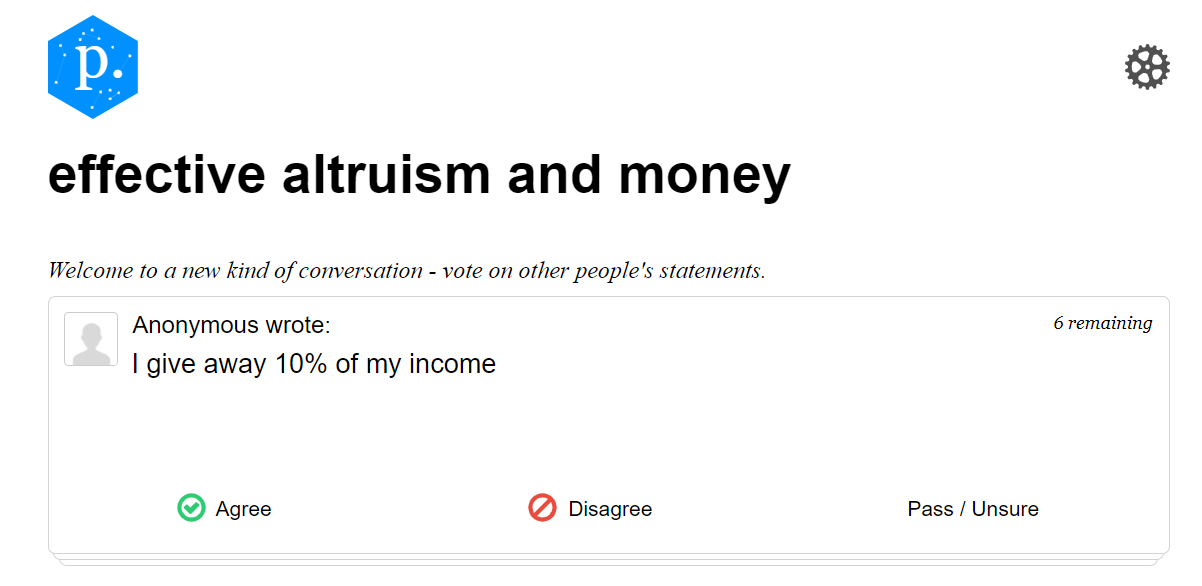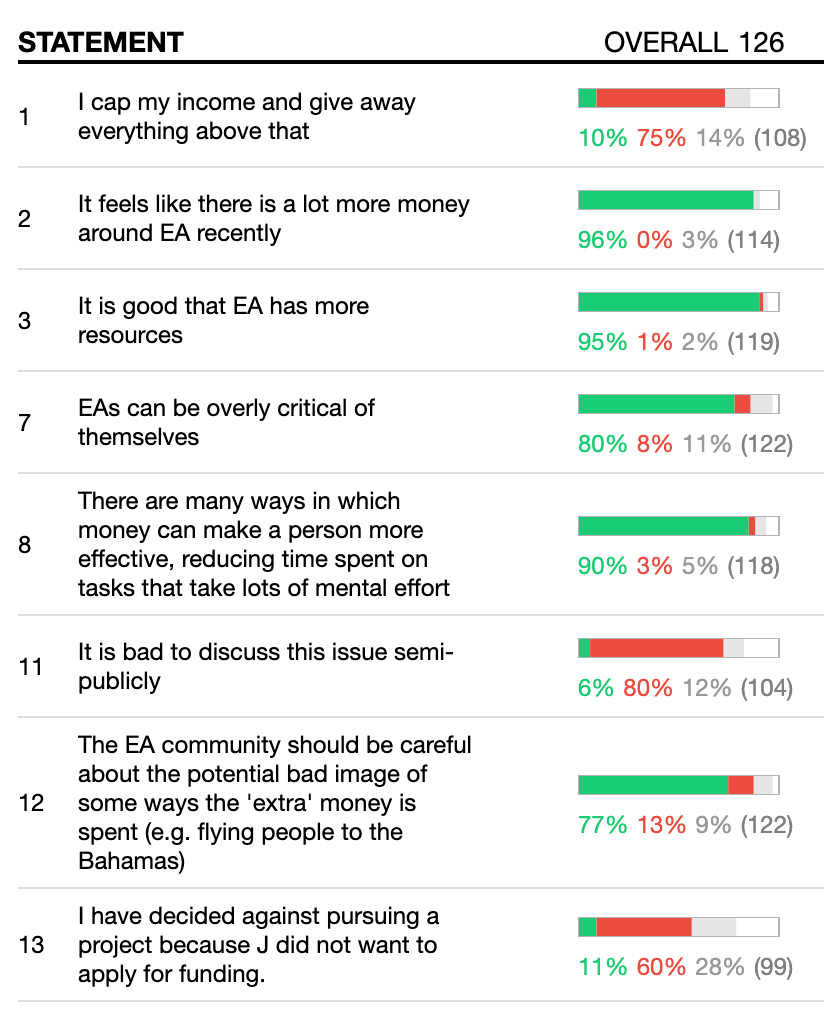Let's talk about the sharp increase in EA funding. I feel anxious about it. I don't think most of my feelings here are rational, but they do affect my actions, so it would be irrational not to take them seriously.
Some thoughts (roughly ordered from general to personal):
- More money is good. It means we have more resources to work on the world's most pressing problems. Yay
- I have seen little evidence that FTX Future Fund (FFF) or EA Infrastructure Fund (EAIF) have lowered their standards for mainline grants
- Several people have gotten in touch with me about regranting money and it seems it would be easier for the median EA to get say $10,000 in funding than it was a year ago. It's possible that this change is more to do with me than FFF though. And also, perhaps this is a good thing. I think it's positive EV to help well aligned people with finance to help them work on important projects faster.
- I'm really really really really grateful to EA Billionaries (in this case Sam Bankman-Fried) for working hard, taking risks and giving away money. I want to both express thanks and also say that working out how do deal with money as a community is important, reasonable work
- The joke "sign up to FTX Funds, I guess" is probably a bad meme. eg "I'm thinking of trying to learn to rollerblade" "sign up to FTX Future Fund?" suggests that FFF has a very low standard for entry. It is a good joke, but I don't think a helpful one.
- Perhaps my anxiety is that I feel like an imposter around large amounts of money - "you can't fund my project, I'm just me". As Aveek said on twitter, sometimes I feel "I wouldn't trust the funding strategy of any organisation that is willing to fund me". This is false, but sometimes I believe it, maybe you do to?
- Perhaps this anxiety is that I worry about EA being seen to be full of grifters. Like the person who is the wealthiest on their street, I don't want bad press from people saying "EAs are spendthrift". I don't think we are, but there is a part of the movement that does get paid more and spend more than many charity workers. I don't know what to do about this.
- My inner Stefan Shubert says "EA is doing well and this is a good thing, don't be so hard on yourself" and I do think there is a chance that this is unnecessary pessimism
- I talk about it on twitter here. I don't mind that I did this, but I think the forum is generally a better place to have the discussion than twitter. Happy to take criticism
- I have hang-ups about money in general. For several years after university I lived on about $12k a year (which is low by UK standards, though high by world ones). It's pretty surreal to be able to even consider applying for say 5x this as a salary. It's like going to a fancy restaurant for the first time ("the waiters bring the food to the table?") I just can't shake how surreal this all is.
- I think it's good to surface and discuss this but I'm open to the idea that it isn't and will blow over.
I've made a Polis poll here if you want to see how different views cluster





Two factual nitpicks:
2. The money's not described by AF as "no strings attached." From their FAQ:
You're wanting transparency about this fellowship's strategy for attracting applicants, and how it'll get objective information on whether or not this is an effective use of funds.
Glancing over the FAQ, the AF seems to be trying to identify high-school-age altruistically-minded geniuses, and introduce them to the ideas of Effective Altruism. I can construct an argument in favor of this being a good-but-hard-to-measure idea in line with the concept of hits-based investment, but I don't see one on their web page. In this case, I think the feedback loop for evaluating if this was a good idea or not involves looking at how these young people spend their money, and what they accomplish over the next 10 years.
It also seems to me that if, as you say, we're still funding constrained in an important way, then experimenting with ways to increase our donor base (as by sharing our ideas with smart young people likely to be high earners) and make more efficient use of our funds (by experimenting with low-cost and potentially very impactful hits-based approaches like this) is the right choice.
I could easily be persuaded that this program or general approach is too flawed, but I'd want to see a careful analysis that looks at both sides of the issue.